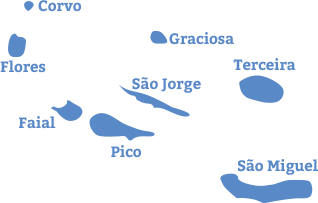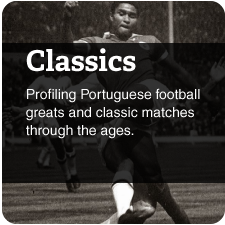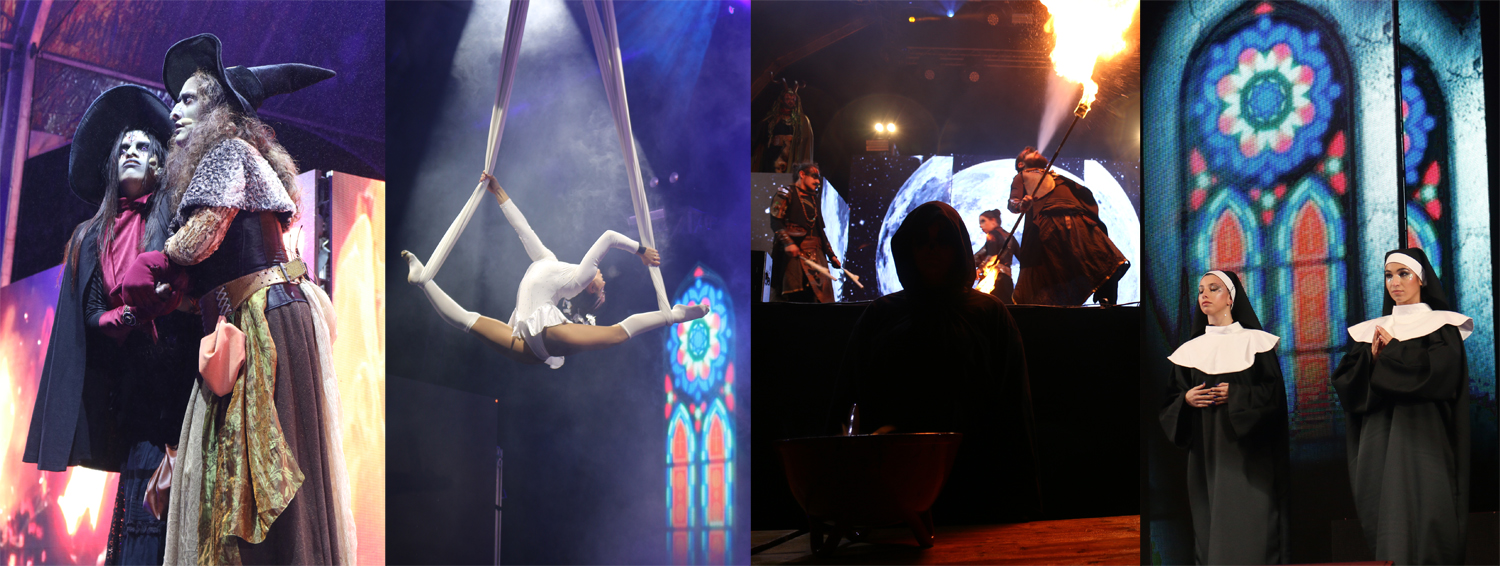
From a distance it looks like any other Friday in Montalegre, a quaint and peaceful town in Trás-os-Montes, the mountainous and rural province in far northern Portugal.
On closer inspection it becomes evident that something peculiar is happening, the first clues being gigantic witches guarding every roundabout that leads into town.
It’s early afternoon and pigs are roasting on spits, branches of fresh rosemary the utensil of choice to apply liberal amounts of luscious marinade. Stages are being set up in every square and people are assembling around bonfires that offer a shield against the January chill.
The castle that has stood guard for centuries is providing a handful of visitors the best view in town. Beyond the mighty walls, preparations are being made for the grand spectacle that will be unleashed on the stroke of midnight.
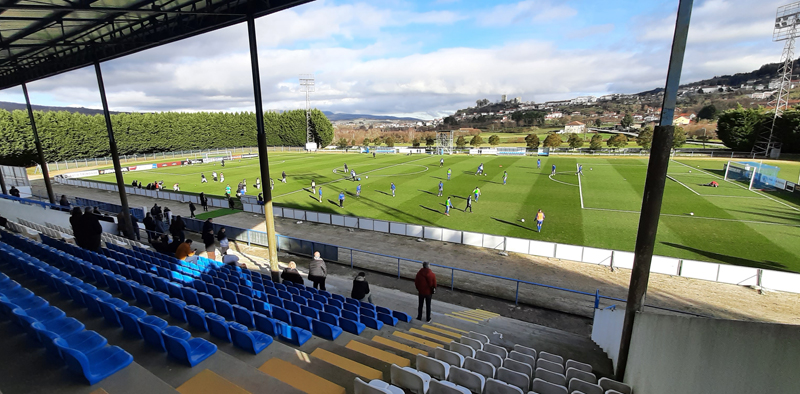
Less than two kilometres away at Estádio Dr Diogo Alves Vaz Pereira, Centro Desportivo e Cultural de Montalegre are preparing to host Sanjoanense with the match kicking off at 3pm.
The hosts had failed to win in their opening nine matches in Liga 3, but confidence was high after four consecutive victories which included three clean sheets.
José Manuel Viage’s side took the lead in the 29th minute when Angola fired a fierce strike into the top corner. Didi missed a great chance before being sent off in the 81st minute, Montalegre hanging on to make it five straight wins and climb to 6th in Group A.
Back in town the sun is setting, revellers are increasing in numbers with many dressed as witches, ghouls and other variations of evil spirits. Succulent pork rolls are being devoured, alcohol consumption has ramped up and DJs are filling the air with music.
This is no ordinary Friday in Montalegre, it’s Friday the 13th.
Sexta 13 - Noite das Bruxas
Friday the 13th – Witches’ Night – can be traced back to Norse paganism, particularly Freia, a goddess associated with love and fertility. When Europeans converted to Christianity, Freia began to be seen as a witch.
According to local legends, she was placed in the mountains where she met with 11 other witches and the devil, completing the number 13 which had long been considered unlucky or evil.
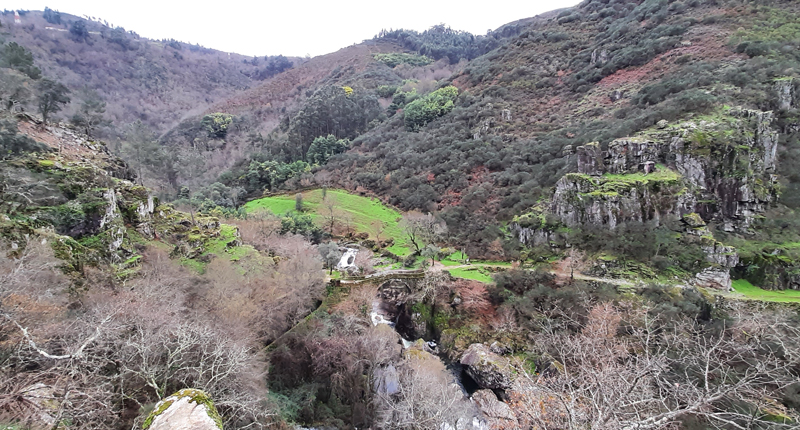 The mythology continued to Ponte da Misarela, a secluded bridge on the edge of the Gerês Natural Park where, with the devil watching on, the 12 witches gathered on every Friday the 13th in order to plan their revenge on the surrounding villages.
The mythology continued to Ponte da Misarela, a secluded bridge on the edge of the Gerês Natural Park where, with the devil watching on, the 12 witches gathered on every Friday the 13th in order to plan their revenge on the surrounding villages.
Witches’ Night is rooted in ancient tales, superstitions and mysticism, but the origins are much more recent. The spectacle began in 2002 and was initiated by one man, António Lourenço Fontes.
Fontes was born in Cambezes do Rio in 1940 and entered the seminary in 1950, starting his first diary to record stories and legends told to him by his mother which included prayers to ward off witches and remedies to cure sore throats.
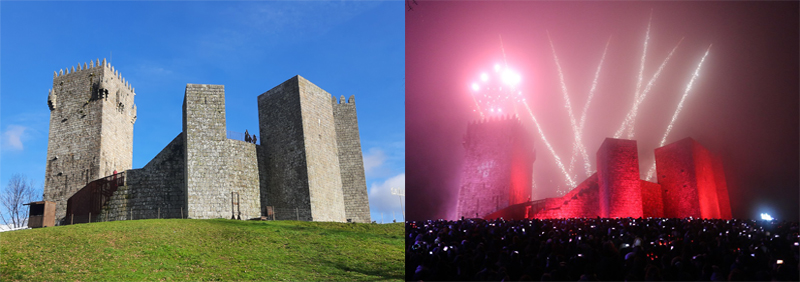
He continued to travel and talk to villagers, always learning, listening and adding the legends to diaries that became more numerous as the years went by.
Ordained in 1963, Fontes was a rebel from the start and was immediately “sent into exile” in Tourém, travelling on horseback to give mass to the villages, creating a school and organising agricultural courses to combat hunger problems in the region.
Fontes came to prominence in 1982 when he started summoning witches, fortune tellers, psychics and palm readers to Vilar de Perdizes which put him at odds with the bishop of Vila Real.
His response was simple, you have to face fear head on: “These are the beliefs and traditions of my people. The remedies, the answers, the devil. To deny our traditions – our paganism, even – would be to diminish a very rich culture, which, moreover, is being lost. Pagan weddings, witchcraft traditions, all these things people used to fear.”
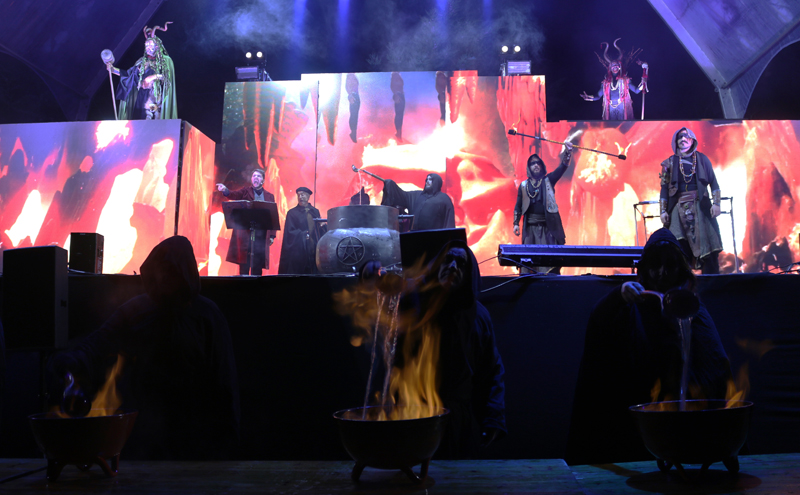 It’s almost midnight. Devils, witches and various varieties of wicked creatures have been entertaining thousands of participants in the festival who have packed every square inch of space in front of the castle.
It’s almost midnight. Devils, witches and various varieties of wicked creatures have been entertaining thousands of participants in the festival who have packed every square inch of space in front of the castle.
The spectacle is nearing its conclusion when Fontes, now in his 80s, takes to the stage behind a giant bowl of Queimada Galega, a communal drink which is a concoction of brandy, sugar, coffee beans, honey, fruit and cinnamon.
It is set alight before being served, the burning representing the exorcism of the evil spirits.
Public exorcism
Fontes takes particular delight in reciting part of an ancient text he found during his travels, a rough translation of which can be: “Go back Satan, to the shitting stones! Fire from burning corpses, mutilated from indecent bodies, farts from infernal arses! Forces of air, earth, sea, and fire, to you I require this call. If it is true that you have more power than the human people, make the absent spirits attend this burning.”
The stroke of midnight signals the start of a fireworks extravaganza before the party continues. DJs are back on the stages, bonfires are still smouldering, squares are jam-packed and copious amounts of Queimada Galega is being consumed.
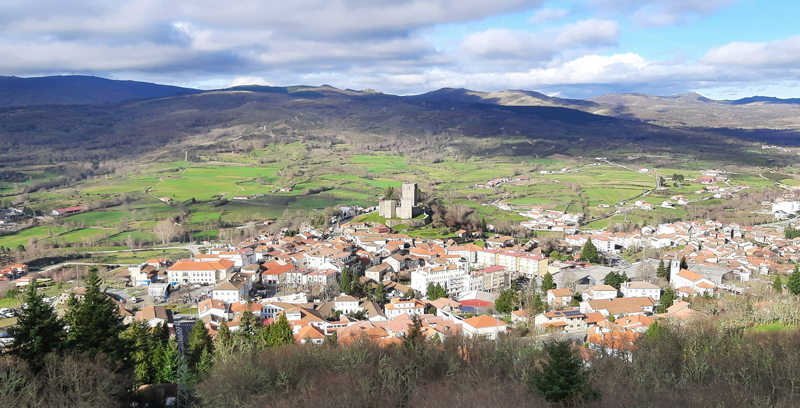 On Saturday morning an elderly resident surveys the remnants of the madness that descended on her peaceful village as a small army of workers eradicate all evidence of what transpired. She is sure to be counting down the days before the next Sexta 13 - Noite das Bruxas, a festa like no other.
On Saturday morning an elderly resident surveys the remnants of the madness that descended on her peaceful village as a small army of workers eradicate all evidence of what transpired. She is sure to be counting down the days before the next Sexta 13 - Noite das Bruxas, a festa like no other.
Article and images by Matthew Marshall
Sources
Ricardo Braz Frade - Sexta-Feira 13 de Montalegre - https://www.portugalnummapa.com/sexta-feira-13-de-montalegre/
Rui Pires - Padre Fontes - https://www.ruipires-photography.com/Rural-Moments/Padre-Fontes/
Ricardo J. Rodrigues - The rosary in the hand and the devil in the heart: Father Fontes' secret diary - https://www.dn.pt/pais/padre-fontes-o-terco-na-mao-e-o-diabo-no-coracao-9583681.html



